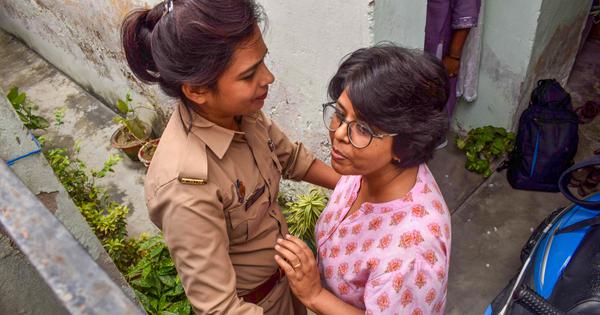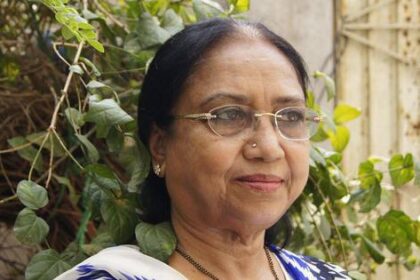Children in prison face a stark reality, stripped of essential experiences for growth and development.
Seema Azad’s memoir, ‘Unsilenced: The Jail Diary of an Activist’, provides a poignant glimpse into the lives of children living in prison. These children, some born within the confines of prison walls, experience a stark reality that is often unimaginable to those outside. While adults in prison may express stress over their circumstances, the children bring a certain vibrancy to their surroundings, marked by their innocent mischief and laughter. However, even they are not immune to the harsh realities of their environment, as they sometimes mimic the adult world, exchanging words that echo the tension around them.
In her observations, Azad distinguishes between two groups of children: those who have glimpsed life outside and those who have never known anything beyond the prison’s confines. The latter group is particularly heart-wrenching, as they are deprived of fundamental experiences crucial for their growth. The government’s policies, while perhaps well-intentioned, strip these children of the chance to explore the world, leaving them unaware of the beauty and wonder that exists just beyond their reach.
One striking moment for Azad involved a child named Khushi, who had been born in prison. During a headcount, she ran to Azad, her excitement palpable as she pointed to the sky. It turned out to be her first encounter with the moon, an ordinary sight that many take for granted. Her mother noted that this was a bewildering experience for Khushi, who had never seen it before. Azad’s heart ached for these children, whose rightful claim to experience nature in all its glory had been denied. The loss of even simple joys, like watching the moon, illustrated the profound impacts of their confinement.
As days went by, Khushi continued to search for the moon, her enthusiasm remaining despite its absence. Azad found it heartbreaking that such ordinary delights were out of reach for these children, as they were robbed of opportunities to engage with the world around them. They had not seen trains, roads, or even common animals, which were foreign to them. Their knowledge was limited to the prison environment, where they encountered only the creatures that shared their space, like centipedes and snakes.
Moreover, the absence of male figures in their lives created a gap in their understanding of family dynamics. Conversations among the children revealed their limited grasp of the concept of a father. When asked about the meaning of ‘pita’, or father, one child could only associate it with those in the men’s prison. This lack of understanding emphasized the isolation these children faced, as they grew up without the fundamental familial connections that shape identity.
The number of children in Naini Central Jail varies, but the impact of their mothers’ circumstances is profound. Their childhoods are overshadowed by the crimes committed or alleged against their parents. Despite claims of providing education for all children, those in Naini Central Jail remain without access to schooling, limiting their experiences further. The prison environment, with its high walls and confinement, stifles their imaginations and aspirations, reducing their world to a mere echo of what life could be.
In the midst of this bleak reality, however, the laughter and play of these children remind everyone around them of the resilience of the human spirit. Their joy, even in such a constrained environment, compels those around them to join in their moments of happiness, offering a glimpse of hope amid a challenging existence.








